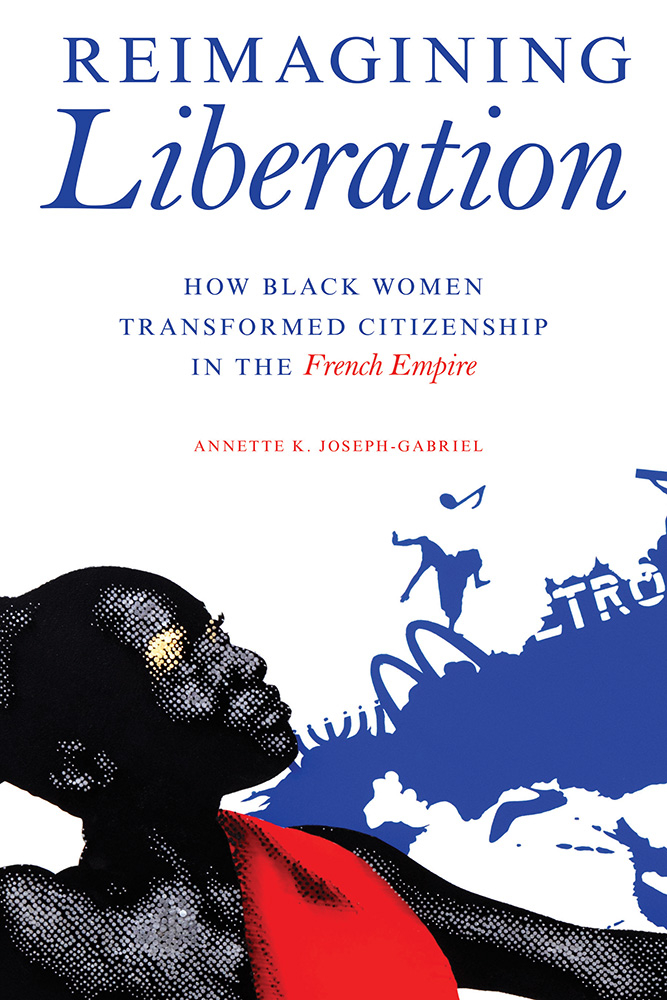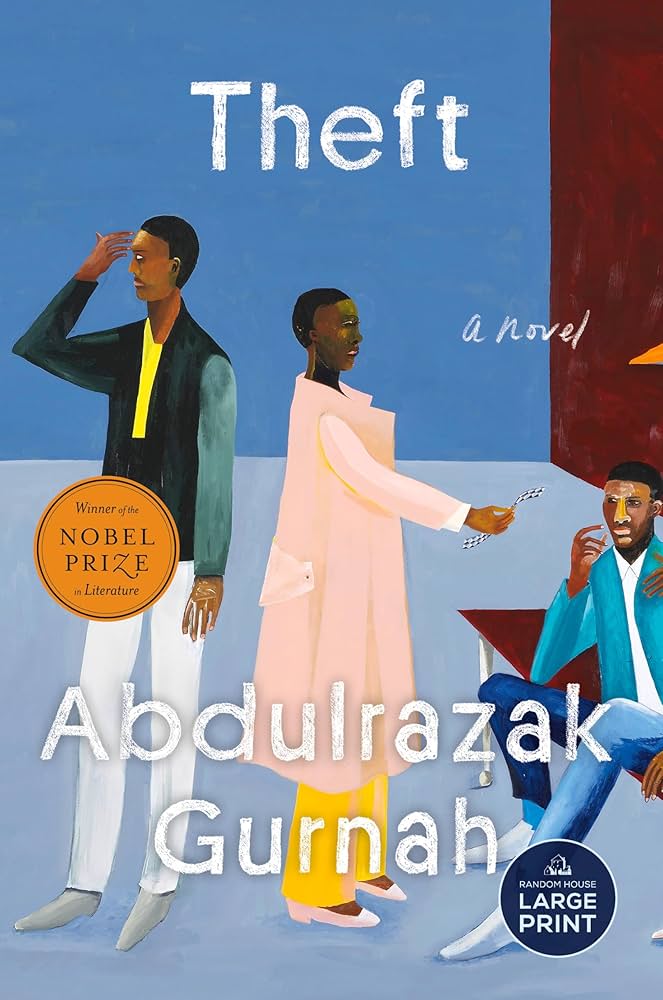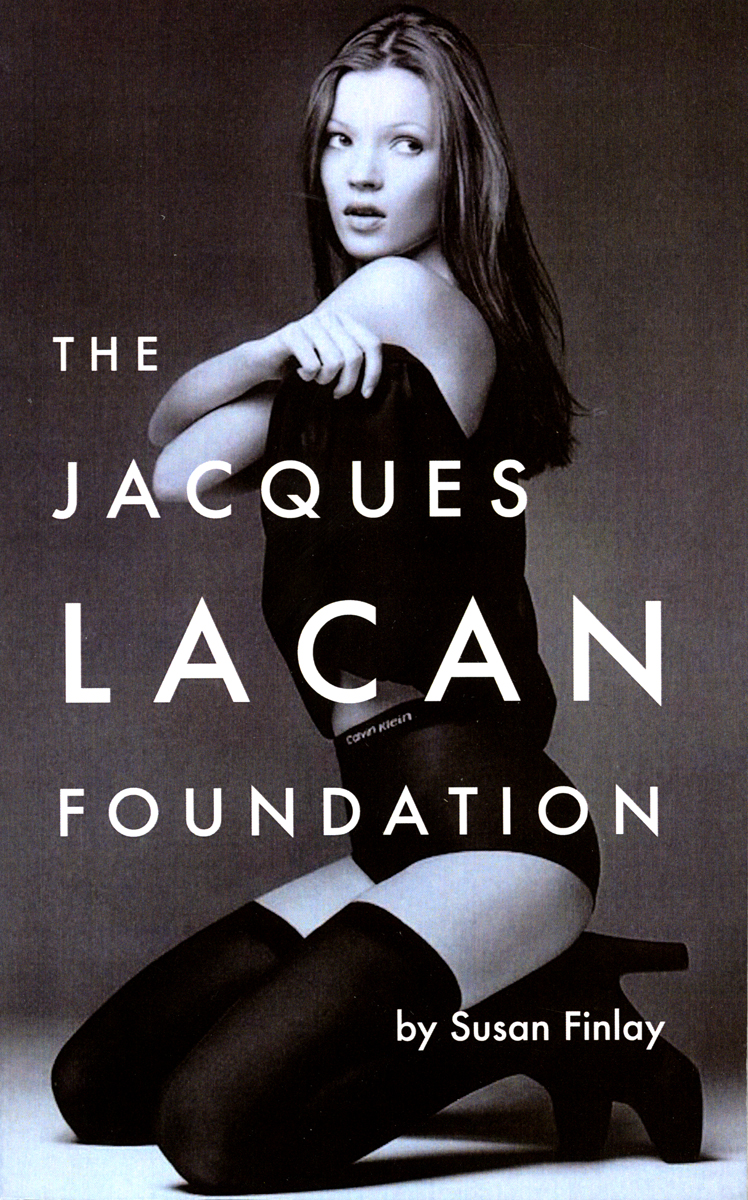Curated by ISABEL MEYERS
In the November installment of Friday Reads, our Issue 20 contributors reflect on the pedagogies of teaching over Zoom, the engines of colonialism, and the process of breaking down cultural divides. As the weather gets colder, curl up with one of these recommendations, and make sure to pick up your copy of Issue 20 today.
Recommendations: Wide Sargasso Sea by Jean Rhys; Poems in the Manner Of… by David Lehman; The Cartographer Tries to Map a Way to Zion by Kei Miller; Reimagining Liberation: How Black Women Transformed Citizenship in the French Empire by Annette K. Joseph-Gabriel
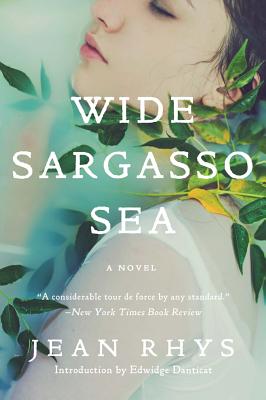 Jean Rhys’s Wide Sargasso Sea; recommended by Deborah Lindsay Williams (TC contributor)
Jean Rhys’s Wide Sargasso Sea; recommended by Deborah Lindsay Williams (TC contributor)
“I thought I’d like to write her a life,” Jean Rhys said about the inspiration for Wide Sargasso Sea, which is the “prequel” to Jane Eyre. Rhys’s book shows us how Charlotte Bronte’s “madwoman in the attic” got there—and once you’ve read it, Jane Eyre will never be the same. Wide Sargasso Sea is the story of Antoinette Cosway, who becomes, over the course of the novel, Bertha Rochester. In the novel’s lush, dream-like prose, that transformation is also a searing indictment of patriarchy and capitalism—the twin engines of colonialism.
Antoinette, a Jamaican Creole, grows up on a ruined plantation, in the chaotic aftermath of the English abolition of slavery and her father’s death. The only person she trusts is Christophine, an ex-slave who keeps house for Antoinette’s family and whose commentary runs through the novel with acerbic accuracy. She tells Antoinette not to trust the English, who see themselves as liberators: they “have Letter of the Law…[but] they got jail house and chain gang…new ones worse than old ones—more cunning, that’s all.” Despite Christophine’s warning, Antoinette is forced into a marriage with an Englishman who is never named, although we know he is Edward Rochester. Like Antoinette, he is forced into the marriage: he is the second son and will thus be penniless unless he marries into a fortune. In his anonymity, he becomes all colonizers, intent on securing a fortune and oblivious to the damage he creates. The first time he insists that Antoinette be called Bertha, she tells him that every story has another side but he does not want to believe it. The only story that matters, in his mind, is the story that he wants to tell. And that story—in which Antoinette is a lunatic who must be confined at all costs—becomes the story that haunts Jane Eyre.
It is not a perfect book by any means—symbols are wielded with a heavy hand, for one thing—but it is a powerful one and its political message has, if anything, become more urgent rather than less: Whose voices get heard? Whose stories get told?
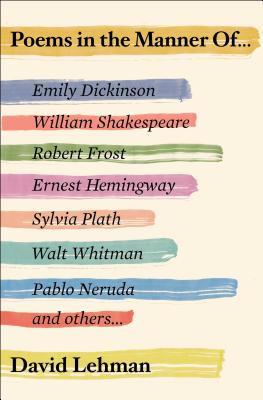 David Lehman’s Poems in the Manner Of…; recommended by Adrienne Su (TC contributor)
David Lehman’s Poems in the Manner Of…; recommended by Adrienne Su (TC contributor)
2020 has not brought a windfall of reading time for me, never mind writing time. I read plenty, but it’s mostly news: I can’t stop checking to see which part of what sky is falling. My summer reading was pedagogy: how to move in-person teaching to Zoom and still do it reasonably well. These forms of reading have been essential, but neither feeds the spirit. Absorption in works designed to outlive their moment, the kind of reading I did when print was the only medium and newspapers weren’t refreshed by the minute, is one of the few sources of comfort, even hope, I’ve been able to access in this extra-horrible annus horribilis. But with the ongoing sense of daily emergency, I have to be led there, the way an exhausted, wailing child has to be persuaded to let go and sleep.
Once I get there, I wonder how I did without. David Lehman’s Poems in the Manner Of… takes me back to that youthful state of stumbling upon Kafka or Rilke or Lady Murasaki for the first time and hearing a singular voice beam across centuries, languages, oceans. The collection is an autobiography in reading, an extended love letter to literature, and a series of tributes by ostensible imitation, with translations in the mix. But these poems aren’t imitations; they are Lehman poems that not only embrace their influences, they take up residence in them and seize their own voice by harnessing another. Its elasticity is a kind of miracle. At moments I forget that I’m reading a “poem in the manner of” rather than the poet whose manner is being borrowed.
The poems can be hilarious (“Poem in the Manner of Bashō,” “Poem in the Manner of Wallace Stevens as Rewritten by Gertrude Stein”); they can also be poignant reminders that time moves in only one direction (“I Remember,” after Joe Brainard). The miracle is that what unfolds from the collection is double: brief introductions (and sometimes the poems themselves) bring you into Lehman’s life, with poets and writers as the soundtrack to each era, and while you join him on his journey, a parallel track in your head opens up your own story. You don’t have to be as voluminously well-read as Lehman to connect; the poems open the door to learning as well as memory, and they’re an affirmation—in a time when many writers can’t write—that reading can be a form of writing.
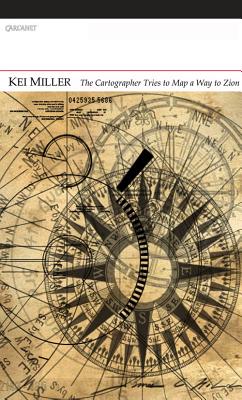 Kei Miller’s The Cartographer Tries to Map a Way to Zion; recommended by Landa wo (TC contributor)
Kei Miller’s The Cartographer Tries to Map a Way to Zion; recommended by Landa wo (TC contributor)
Reading The Cartographer Tries to Map a Way to Zion by Kei Miller has been one of my biggest surprises during the lockdown period in France. In Miller’s book, we have two conflicting world views: that of the cartographer and that of the Rastafarian. The cartographer’s approach is logical and scientific to the mechanical limit to find the way to Zion, an idea that consists of believing you need a map to find your way. As a foreigner, the cartographer is seeking answers whereas the Rastafarian, representing Jamaica, has already obtained answers that seem incomprehensible and incomplete for the foreigner.
The cartographer’s vocabulary uses a precise, standard English while the Rastafarian uses patois and locally idiomatic language. This adds to the cartographer’s deep frustration when the locals don’t give any suggestions on where to go, but rather advice on where not to go. There is a real cultural divide between these two worlds. Eventually, the cartographer accepts with difficulty the uncertainty, while the Rastafarian, proud of their culture, is more serene, giving information on the people and things in their cultural, historic and sociological context. The Rastafarian accepts not knowing things in the scientific sense so dear to the cartographer.
This collection is a scathing summary of the current period, with worlds in conflict because they have not managed to come to a mutual understanding. To understand the Other, it’s necessary to question what has been taken for granted. And that calls for more than courage alone.
Annette K. Joseph-Gabriel’s Reimagining Liberation: How Black Women Transformed Citizenship in the French Empire; also recommended by Landa wo (TC contributor)
From my years of living in Congo Brazzaville I have retained nothing of Jane Vialle but the name of a street in the Bacongo area or a dispensary in Pointe Noire. I knew nothing of who this woman was and even less about her contribution to the major history of decolonization. And what is there to say about Suzanne Césaire, who I only discovered recently, even though I’d read Aimé Césaire’s work? A woman in the shadow of the poet. Suzanne Césaire, Paulette Nardal, Eugénie Éboué-Tell, Jane Vialle, Andrée Blouin, Eslanda Robeson, and Aoua Kéita are women who have led extraordinary lives in an unsettled century.
Reimagining Liberation: How Black Women Transformed Citizenship in the French Empire is a book that questions the relationship to knowledge and the curiosity necessary for any individual who wishes to become an informed member of their town. The paths taken by these women inspire admiration and above all allow us to put into perspective their contributions to the Pan-Africanism and pan-Caribbean causes. This book is very interesting as, while the approach is historical, it can be read as a literary work. Finally, the Balkanization of Africa results in the continent’s knowledge being split according to the language of the former colonizer with very few interactions. This book presents a good opportunity for the Anglophone world to discover these exceptional women from the Francophone world. With some optimism, I see in this book the first healing crystal to promote communication between the different African linguistic areas, and to recognize the contributions made by women in the liberation of the African continent.
